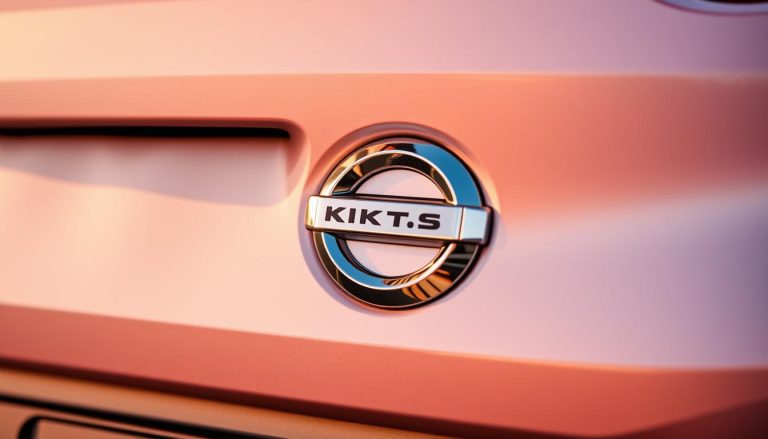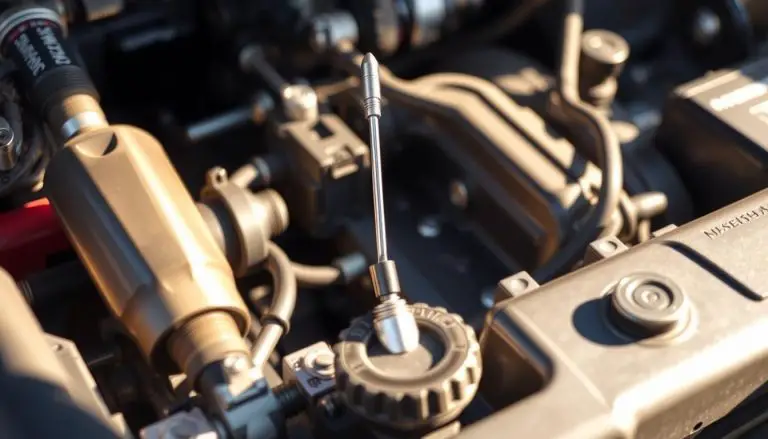The 1.3 DIG-T engine has garnered significant attention among automotive aficionados and prospective buyers. Its reliability stands as a pivotal determinant of its intrinsic value.
Discussions surrounding the engine’s performance and potential malfunctions have surfaced. Grasping these concerns is imperative for both current proprietors and those contemplating the acquisition of a vehicle outfitted with this engine.
Key Takeaways
- The 1.3 DIG-T engine’s reliability is a key consideration for buyers.
- Potential engine issues can impact overall vehicle performance.
- Researching the engine’s reliability can help inform purchasing decisions.
- Regular maintenance is crucial for ensuring the engine’s longevity.
- Understanding common issues can help owners take preventative measures.
Overview of the Nissan1.3 DIG-T Engine
The Nissan 1.3 DIG-T engine has garnered considerable attention among automotive aficionados, celebrated for its harmonious fusion of potency and parsimony. This turbocharged powerplant is meticulously crafted to strike a equilibrium between vigor and frugality, rendering it a compelling choice for a myriad of vehicular applications.

Technical Specifications and Design Features
The Nissan 1.3 DIG-T engine is distinguished by its array of technical specifications and design attributes. It is a turbocharged, direct injection gasoline engine with a displacement of 1.3 liters. Its design is engineered to deliver considerable power relative to its diminutive size, rendering it apt for a diverse spectrum of driving scenarios.
| Specification | Detail |
|---|---|
| Engine Type | Turbocharged, Direct Injection Gasoline |
| Displacement | 1.3 Liters |
| Power Output | Up to 160 HP |
| Torque | Up to 240 Nm |
Vehicle Applications and Market Position
The Nissan 1.3 DIG-T engine is employed in a variety of Nissan models, including the Nissan Qashqai and Nissan Juke. Its compact dimensions and efficient architecture render it an exemplary choice for contemporary vehicles where spatial constraints are paramount. The engine’s market standing is competitive, offering a synergy between performance and fuel economy.
Development History and Manufacturing Process
The genesis of the Nissan 1.3 DIG-T engine entailed groundbreaking innovations in turbocharging and direct injection technology. Nissan’s engineers endeavored to forge an engine capable of delivering robust performance while concurrently minimizing environmental footprint. The manufacturing methodology employs cutting-edge production methodologies to guarantee excellence and dependability.
Nissan1.3 DIG-T Engine Reliability: Common Issues
The Nissan 1.3 DIG-T engine, despite its innovative design, has been associated with several reliability concerns that potential buyers should be aware of. While it offers impressive performance and fuel efficiency, certain components have been known to exhibit issues that can impact the overall driving experience.
Turbocharger and Boost Control Problems
One of the primary concerns with the Nissan 1.3 DIG-T engine is the turbocharger and its boost control system. Turbocharger failures can lead to a significant loss of power and potentially costly repairs. Issues such as turbo lag and inconsistent boost pressure have been reported, affecting the engine’s overall performance.

Direct Injection System Complications
The direct injection system, while efficient, can be prone to complications. Carbon buildup on the intake valves is a common issue, leading to reduced engine performance and potentially causing problems with fuel economy. Regular engine maintenance, such as walnut blasting, can help mitigate these issues.
Cooling System Vulnerabilities
The cooling system is another area where the Nissan 1.3 DIG-T engine can be vulnerable. Leaks in the cooling system can lead to overheating, which in turn can cause significant damage to the engine. Regular checks and maintenance of the cooling system are crucial to prevent such issues.
Electrical and Sensor Failures
Electrical and sensor failures can also impact the reliability of the Nissan 1.3 DIG-T engine. Issues with sensors can lead to incorrect engine readings, affecting performance and potentially causing the engine to run inefficiently. Faulty electrical components can lead to a range of problems, from minor annoyances to significant engine malfunctions.
| Common Issue | Description | Potential Impact |
|---|---|---|
| Turbocharger Failure | Failure of the turbocharger due to wear or lack of maintenance. | Significant loss of power, costly repairs. |
| Carbon Buildup | Accumulation of carbon deposits on intake valves. | Reduced engine performance, poor fuel economy. |
| Cooling System Leaks | Leaks in the cooling system leading to overheating. | Engine damage, potential for costly repairs. |
| Electrical/Sensor Failures | Failures of electrical components or sensors. | Inefficient engine operation, potential for engine damage. |
Understanding these common issues can help Nissan 1.3 DIG-T engine owners and potential buyers take proactive steps in maintaining their vehicle’s performance and reliability. Regular maintenance and timely repairs are key to mitigating these issues and ensuring the engine operates at its best.
Maintenance Requirements and Cost Considerations
To maintain the Nissan 1.3 DIG-T engine’s efficiency, adherence to a structured maintenance regimen is imperative. This approach not only preserves the engine’s reliability but also mitigates the risk of incurring substantial repair expenses in the future. The maintenance regimen for a turbocharged engine, such as the Nissan 1.3 DIG-T, diverges from that of naturally aspirated engines due to the turbocharger’s and direct injection system’s added complexity.
Recommended Service Intervals and Procedures
The manufacturer advocates for servicing the Nissan 1.3 DIG-T engine at intervals ranging from 12,000 to 15,000 miles. This regimen encompasses oil changes, filter replacements, and evaluations of the cooling system, all critical for the turbocharged engine’s longevity. Regular oil changes are paramount as they facilitate lubrication of engine components and cooling of the turbocharger.
Inspections of the engine’s belts and timing chain at these intervals are also recommended, as their failure can incur significant repair expenses. Monitoring the turbocharger’s condition for signs of wear or failure, such as excessive oil consumption or unusual noises, is also advisable.
Preventative Maintenance Strategies
Preventative maintenance is essential for the reliability of the Nissan 1.3 DIG-T engine. This entails regular assessments of the engine’s oil level and quality, verification of the cooling system’s functionality, and vigilance for any indicators of turbocharger malfunction. Utilizing high-quality engine oil that adheres to the manufacturer’s specifications is critical, as it sustains the engine’s performance and extends its lifespan.
Driving habits significantly influence the engine’s maintenance requirements. Avoiding extreme temperatures, refraining from excessive engine revving when cold, and allowing the engine to idle briefly before shutting off after prolonged driving can mitigate turbocharger wear.
Average Repair Costs and Common Replacement Parts
The cost of repairing the Nissan 1.3 DIG-T engine varies widely based on the nature of the issue. Common repairs encompass turbocharger replacement, cooling system leak rectification, and direct injection system issue resolution. The average cost for a turbocharger replacement spans from $1,000 to $2,000, contingent upon whether the turbocharger is rebuilt or replaced with a new unit.
Additional potential expenses include engine oil and filter replacement, timing chain repair or replacement, and addressing electrical or sensor malfunctions. Proactive maintenance can facilitate early identification of these issues, potentially reducing the overall repair costs.
Real-World Performance and Owner Experiences
The Nissan 1.3 DIG-T engine has been extensively tested in real-world scenarios, offering profound insights into its performance and reliability. Owners and enthusiasts have shared their experiences, providing a comprehensive view of the engine’s capabilities and limitations.
Fuel Economy and Power Delivery Assessment
The Nissan 1.3 DIG-T engine strikes a balance between fuel efficiency and power delivery. Its turbocharged design ensures a responsive driving experience while maintaining reasonable fuel economy. Key points regarding its fuel economy and power delivery are as follows:
- Average fuel economy ratings range from 30-40 mpg in combined driving conditions.
- The engine delivers 160 horsepower and 180 lb-ft of torque, making it suitable for everyday driving and occasional spirited driving.
- Some owners have reported that the engine’s power delivery is smooth and linear, thanks to its advanced turbocharging system.
Long-Term Durability Reports
Long-term durability is a critical aspect of any engine’s reliability. Owners have reported varying experiences with the Nissan 1.3 DIG-T engine’s durability, with some praising its robustness and others noting issues that arose over time. Key findings include:
- Some owners have reached high mileage (over 100,000 miles) without major issues, attributing their success to regular maintenance.
- Others have reported problems such as turbocharger failure and oil leaks, which can be costly to repair.
- Regular maintenance, such as oil changes and filter replacements, is crucial for extending the engine’s lifespan.
Comparison with Similar Turbocharged Engines
When comparing the Nissan 1.3 DIG-T engine to similar turbocharged engines in its class, several factors come into play. Here’s a brief comparison:
| Engine | Fuel Economy (mpg) | Power Output (hp) | Torque (lb-ft) |
|---|---|---|---|
| Nissan 1.3 DIG-T | 35 | 160 | 180 |
| Ford 1.0 EcoBoost | 40 | 125 | 125 |
| Volkswagen 1.5 TSI | 38 | 150 | 184 |
The Nissan 1.3 DIG-T engine holds its own against competitors in terms of performance and efficiency. Individual experiences may vary based on driving habits, maintenance, and other factors.
Conclusion: Is the Nissan1.3 DIG-T Engine Worth Considering?
The Nissan 1.3 DIG-T engine has garnered significant attention from car aficionados and prospective buyers. An in-depth analysis of its technical specifications, prevalent issues, upkeep necessities, and practical performance reveals its intrinsic value.
Reliability is paramount in evaluating the engine’s worth. Despite certain vulnerabilities, notably with the turbocharger and direct injection system, diligent maintenance can circumvent these challenges. Adherence to regular servicing and proactive measures can substantially prolong the engine’s lifespan and Nissan performance.
Regarding engine reliability, the Nissan 1.3 DIG-T exhibits both merits and drawbacks. Its commendable fuel efficiency and robust power delivery stand out, positioning it as a suitable alternative for those desiring a harmonious blend of economy and potency.
The choice to evaluate the Nissan 1.3 DIG-T engine hinges on personal preferences and requirements. For individuals prioritizing its advantages and committed to following maintenance guidelines, this engine emerges as a dependable option. By grasping its attributes and potential pitfalls, drivers can optimize their driving experience and harness the engine’s full potential.
FAQ
What are the common issues with the Nissan 1.3 DIG-T engine’s turbocharger?
The turbocharger of the Nissan 1.3 DIG-T engine frequently encounters boost control malfunctions. Such issues can significantly diminish engine performance, potentially leading to severe engine damage.
How often should I service my Nissan 1.3 DIG-T engine?
Nissan advocates for regular servicing of the 1.3 DIG-T engine, typically every 12,000 to 15,000 miles. This interval may fluctuate based on the driving environment.
What are the average repair costs for the Nissan 1.3 DIG-T engine?
Repair costs for the Nissan 1.3 DIG-T engine vary widely, influenced by the complexity of the repair. Owners can anticipate expenditures ranging from 0 to ,000 for typical repairs.
How does the Nissan 1.3 DIG-T engine compare to other turbocharged engines in its class?
The Nissan 1.3 DIG-T engine competes favorably with its peers in terms of fuel efficiency and power output. Its reliability, though, remains a topic of ongoing discussion.
What preventative maintenance strategies can I use to extend the life of my Nissan 1.3 DIG-T engine?
To prolong the life of the Nissan 1.3 DIG-T engine, regular oil changes and timely replacement of worn parts are essential. Avoiding extreme driving conditions is also crucial.
Are there any known issues with the cooling system of the Nissan 1.3 DIG-T engine?
Affirmative, several owners have encountered cooling system malfunctions, including leaks and overheating. Such issues can cause substantial damage if not promptly addressed.
How does the Nissan 1.3 DIG-T engine’s direct injection system work?
The direct injection system of the Nissan 1.3 DIG-T engine injects fuel directly into the cylinders, enhancing fuel efficiency and performance. Yet, it is susceptible to complications if not maintained adequately.
What are the most common electrical and sensor failures in the Nissan 1.3 DIG-T engine?
The Nissan 1.3 DIG-T engine frequently experiences electrical and sensor system failures. Notably, issues with the crankshaft position sensor and fuel pressure sensor are prevalent.


